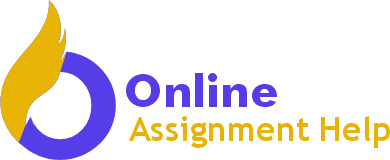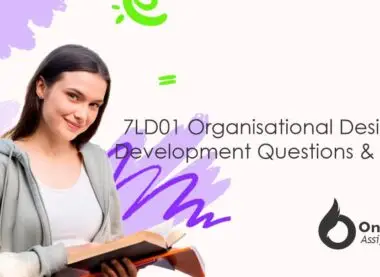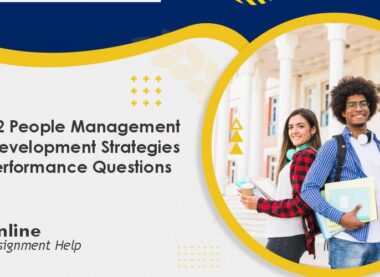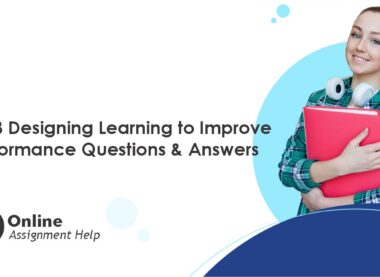Business research in people practice (7CO04)
About this Unit
Level 7 of Strategic Learning and Development is compulsory for all students. Being a Level 7, this unit is strongly linked to the Profession Map. As a core unit, the module is directly aligned with the Profession Map’s core knowledge and behaviours. This academic discipline covers the components required for a systematic approach to identify, design, and conduct a business research study in people practice. Finally, the unit focuses on creating an integrated report based on evidence, including personal recommendations and critical assessment.
What you will learn
This unit gives learners a distinct and profound grasp of the People Profession, naturally developing their competence and assisting with the transition to strategic people management roles. As a learner, you will learn how to plan a business research project, which will include an analysis of themes that will provide value to the organisation. Under this discipline, the learner will learn the critical examination of major publications, and terms of reference will be illustrated, as well as the development of a series of questions to support the project’s focus and developed outcomes. Through this unit, a learner will be able to differentiate between primary and secondary data, conduct a cost-benefit analysis, and undertake ethical research regarding data collection for their project. As a student of this course, you will learn how to devise an effective strategy for analysing and organizing your data. As a result of the project, you will provide conclusions and business-focused recommendations and reflect on how you could enhance future project design and delivery. The unit also gives learners a distinct and deep degree of learning, which naturally advances their competence and aids in the transition to strategic people management responsibilities, enabling them to take these responsibilities a step further by integrating them with the objectives of other departments the overall organisation goals.
This unit is suitable for persons who
- The Advanced Diploma in Strategic People Management is designed for experienced people practitioners working in a senior people practice role who wants to broaden and deepen their knowledge and abilities to shape strategy, policy, and people.
- Are interested in pursuing a career in human resource management and have completed the CIPD Foundation Diploma in Human Resource Practice.
- Aspire to impact people practices in order to produce value for a broader audience at the moment, currently leading and managing people and practices within enterprises.
- Are currently employed in the area of human resource management and wish to expand your knowledge and skills.
Learning outcomes
Upon completing this unit, learners should be able to fulfil the following four primary learning outcomes. These outcomes are further classified into a variety of sub-categories. The learning outcomes will enable them to:
- Be able to plan a people practice business research project aimed at adding organisational value. (Learning outcomes 1)
- Be able to justify the most appropriate research methods to collect data for the chosen project. (Learning outcomes 2)
- Be able to analyse data to make decisions and provide business and people management insights. (Learning outcomes 3)
- Be able to propose recommendations based on conclusions derived from the research and analysis. (Learning outcomes 4)
What are the entry requirements?
For an expert level qualification, the unit has a number of formal requirements, some varying from institution to institution while others cut across all students enrolling for the unit. A majority of institutions have established their own assessment tools to ensure that candidates have the necessary qualifications to study for business research in people practice. Some universities, for instance, stipulate that candidates must be at least 18 years old on or before July 1st of the academic year in which they seek to enrol for the course. Furthermore, most institutions conduct interviews on their candidates before enrolling them on the course.
In most situations, universities require candidates to have a basic understanding of the English language in order to enrol in the course. Some, for instance, require candidates to have a GCSE score of C/4 or higher in English. However, institutions follow the CIPD recommendation, which encourages learners to seek counselling before enrolling in the program if English is not their first language. Some colleges require students with English as a second language to obtain IELTS 6.5/ESOL Level 2 or an equivalent. On the other hand, other institutions prefer to assess situations on an individual basis.
Most, if not all, institutions require applicants to have a bachelor’s degree with CIPD level 5 certifications and be currently in or previously worked in an HR position. Others demand that applicants must have a Level 6 Bachelor’s degree (Hons) in a human resource-related field. Candidates must, however, have appropriate experience in an HR role as a minimum requirement. Significant human resource expertise at a strategic level is admissible as a substitute for a degree in exceptional cases and subjected to review. These diagnostics ensure that students can effectively complete and comprehend the Units and literacy requirements.
How we can help
Writing tasks are well-known for taking an inordinate amount of time to complete. Our obligation is to relieve you of academic burdens. We offer writing aid to students who seek assistance with assignments relating to “Business research in people practice (7CO04).” We have effectively crafted a writing platform built on intellectual capacity with you in mind. A collaborative workspace where innovative minds work together to help you avoid study headaches, stress and all-nighters. We are a team of highly skilled writers, editors, and proof-readers whose primary purpose is to make exceptional work effortless by relieving you of the burden of having to do the tedious tasks yourself. Our team consists of highly experienced professionals who ensure that our clients earn the highest possible grade on their research work and projects. We do not turn down any topic, no matter how urgent or hard it is considered by the client. We have a strict zero-tolerance policy for plagiarism, and each assignment is completed entirely from scratch. Prior to submitting each paper to you, we scan it for originality using licensed software to ensure that it is 100% unique. Our highly- skilled writers can complete any paper, and you can rest assured that it will be well-researched. We pay close attention to the amount of effort put into the research that goes into the paper to ensure that it is comprehensive and based on credible sources.
Furthermore, the document must be thoroughly proofread in order to adhere to all marking rubrics and reference styles. Many students are apprehensive about their personal information being compromised; however, have no fear; our flawless Privacy Policy is designed to ensure that our services are entirely safe, secure, and confidential. Our primary objective is to ensure that each client that works with us excels academically.
Resources used for the unit.
Barends, E., & Rousseau, D. M. (2018). Evidence-based management: How to use evidence to make better organizational decisions. Kogan Page Publishers.
Bell, E., Bryman, A. and Harley, B. (2019) Business research methods.5th ed. Oxford: Oxford University Press.
Creswell, J.W. and Creswell, J.D. (2018) Research design: qualitative, quantitative and mixed methods approach. London: Sage.
Easterby-Smith, M., Thorpe, R. and Jackson, P.R. (2018) Management and business research methods. 6th ed. London: Sage.
Edwards, M.R. and Edwards, K. (2019) Predictive HR analytics: mastering the HR metric. 2nd ed. London: Kogan Page.
Field, A. (2018) Discovering statistics using IBM SPSS statistics. 5th ed. London: Sage.
Marchington, M., Wilkinson, A. Donnelly, R. and Kynighou, A. (2020) Human resource management at work: the definitive guide. 7th ed. London: CIPD Kogan Page.
Marr, B. (2018) Data-driven HR: how to use analytics and metrics to drive performance. London: Kogan Page.
Mason, J. (2018) Qualitative researching. 3rd ed. London: Sage.
Saunders, M.N.K., Lewis, P. and Thornhill, A. (2019) Research methods for business students. 8th ed. Harlow: Pearson Education.






